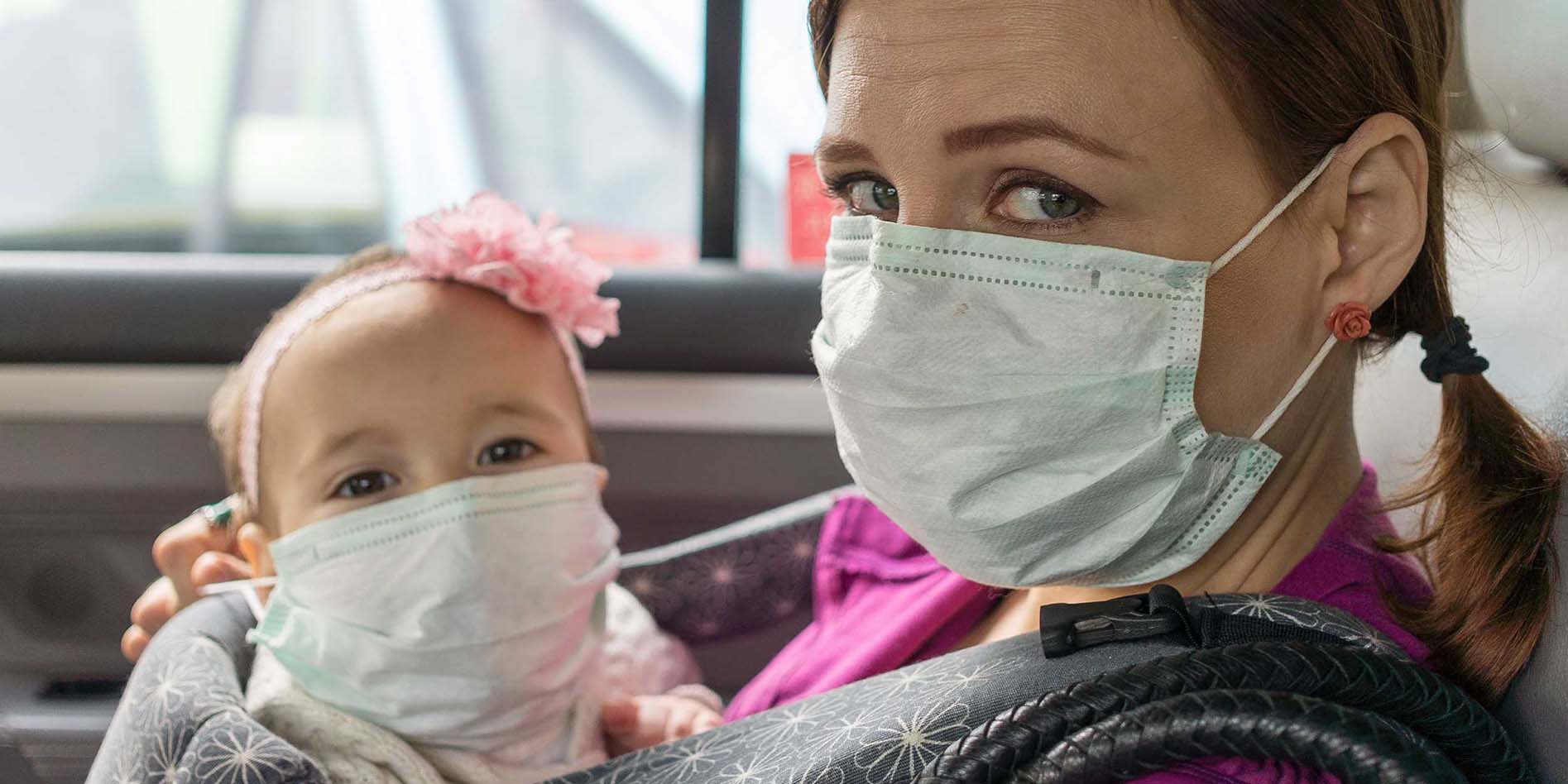How has the COVID-19 pandemic affected mental health?
Mental HealthArticle26 April 2022
The pandemic has impacted the world’s mental health in ways no one could have predicted. We examine five of the most significant impacts and the lessons about mental wellbeing we’ve learnt along the way.
COVID-19 has created an unprecedented global crisis in mental health, the scale of which probably won’t be fully understood for years and perhaps even decades to come.
In some ways, it is a health emergency almost as urgent and widespread as the disease itself; indeed, more than half of respondents (51%) to a seven-country survey by the International Committee of the Red Cross (ICRC) said the pandemic had negatively impacted their mental health.
Commenting on this report, the ICRC’s director-general Robert Mardini said: “The COVID-19 health crisis has exacerbated the psychological distress of millions of people. Lockdown restrictions, a loss of social interaction, and economic pressures are all impacting people’s mental health and access to care.”
However, a positive twist in the tale is also starting to emerge. Around the world, mental health issues have never been more widely or openly discussed. Previously poorly understood issues – such as how loneliness can trigger depression and the anxiety caused by overexposure to social media – are now the subject of public policy and mainstream debate.
One crisis, three distinct groups
Yet with the COVID crisis still affecting people of all nationalities, ages and income levels around the world, it is still hard to get a clear picture of the impact of COVID-19 on mental health. Dr. Sally Phillips, Head of Health Services at Zurich Australia, recommends that any analysis should start by considering the pandemic’s effects on three distinct groups:
“The first group is people who were mentally healthy before the pandemic, with no previous mental health issues whatsoever. How has the crisis affected them? The second group is people who probably did have underlying mental health issues but weren’t aware of them. The pandemic may have exacerbated their condition progressing it into a diagnosable mental health condition.
The third group, which I don’t think we should forget, is people with previously diagnosed mental health conditions. One of the major impacts on this group is having reduced access to healthcare, so they are no longer able to see their psychiatrists, psychologists or obtain their regular medicines. For some, of course, the nature of the social restrictions has been so overwhelming that their underlying conditions have also worsened due to the pandemic.”
" For some, the nature of the social restrictions has been so overwhelming that their underlying conditions have also worsened due to the pandemic."
Dr. Sally Phillips, Zurich Australia
Another factor adding to the complexity of the picture is the extraordinary way in which the transmission of a single disease has disrupted mental health and wellbeing in so many different ways. Here are five of the most significant:
1. Fear and anxiety
These negative emotions were perhaps most keenly felt in the first months of the crisis when, as Dr. Phillips highlights, understandable personal fears were amplified “by the 24-hour media coverage and constant updates on the number of people who have contracted the disease and the number of people who have died – especially on social media.” Even with the advent of vaccines, no one can yet say how long it will be before people feel as safe and secure in public as they did before the pandemic.
2. Loneliness and social isolation
As COVID-19 spread between countries and communities, governments introduced lockdowns and other social distancing measures. These may have been successful in slowing the disease’s spread, but they also deprived people of vital human contact. Australian surveys undertaken since the onset of the COVID-19 pandemic, show just over half (54%) of respondents reported that they felt more lonely since the start of the pandemic. These feelings of dislocation were bound to have a negative effect, as there are already well-established links between loneliness and major mental illnesses such as depression.
3. Living in a bubble
As lockdowns continued, what started for some as a welcome escape from the office gradually exerted pressures and stresses of its own. “When you’re used to having a bit of space,” Dr. Phillips observes, “being in relationships 24/7 with people may be challenging – many people just aren’t used to that.” In some instances, this had terrible consequences, with the United Nations Population Fund estimating that cases of domestic abuse will have increased during the pandemic by 20 percent.
4. Redundancy and other financial pressures
According to the World Economic Forum, 114 million people lost their jobs because of the COVID-19 pandemic in 2020. But every time it seemed the world was on the road to recovery, new variants like Delta and Omicron would emerge that ensured COVID-19 dominated the global economy for a second year.
Guy Ryder, Director-General of the International Labour Organization (ILO), says, “throughout 2021, the pandemic weakened the economic, financial and social fabric in almost every country.” As a result, in January 2022, the ILO downgraded its forecast for labor market recovery in 2022 and says it expects global unemployment to remain above pre-COVID-19 levels until at least 2023.
The mental health implications of this financial disaster – which is far more severe than the global financial crisis of 2008 – are yet to be fully measured or understood.
5. Disruption to mental healthcare services
As the crisis continued, a lack of mental healthcare became a truly global problem. A survey published by the World Health Organization (WHO) found that the pandemic had disrupted or halted critical mental health services in 93 percent of countries worldwide, even as the demand for those services increased.
However, although the breadth and depth of this crisis in mental health should not be underestimated, the global community has also shown remarkable resilience in its response. The pandemic has taught governments, health professionals and ordinary citizens valuable lessons about their mental wellbeing that will hopefully endure long after the pandemic is over.
In particular, people have come to cherish human connection and the face-to-face, real world experiences that cannot be replicated online. “There have definitely been some positives,” says Dr. Phillips, “both on the medical and the social side. Especially in highlighting the importance of family. Some people might have previously taken their parents or grandparents for granted. But after being separated from them for so long, they appreciate the value of spending time with them.”
Life lessons from lockdown
The pandemic has also given people a clearer understanding of how, in practical terms, to look after their own mental health. Everyone’s day-to-day lives benefit from structure, a minimum of anxiety-inducing distractions and a sense of personal control – all things we can work to maintain in the post-COVID world.
Lockdowns have also taught companies all around the world to adopt more flexible working practices, freeing up their employees to achieve a healthier work/life balance, with more time spent at home and less cursing their daily commute.
But perhaps the biggest positive of all is the way the pandemic has alerted the world to the common mental health issues that were bubbling to the surface even before the virus emerged. In time, the pandemic may even be seen as a timely wake-up call that helped to reduce the stigma around mental illness by bringing it out the open.
Jagan Chapagain, Secretary General of the IFRC, is urging the world to seize this unique opportunity for action: “Now more than ever we must invest in mental health and psychosocial support for everyone – communities and carers alike – to help people cope, rebuild their lives and thrive through this crisis.”



